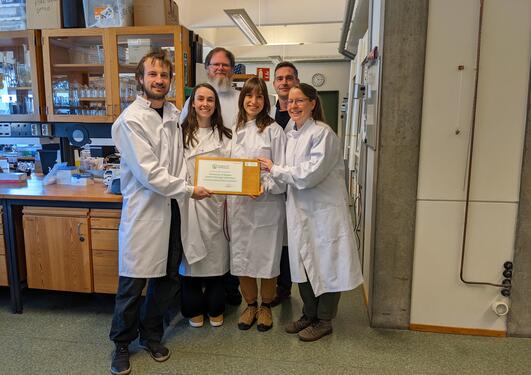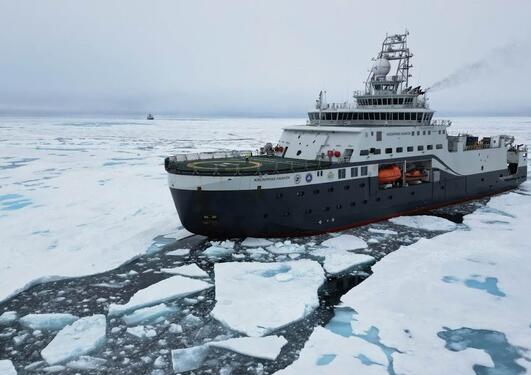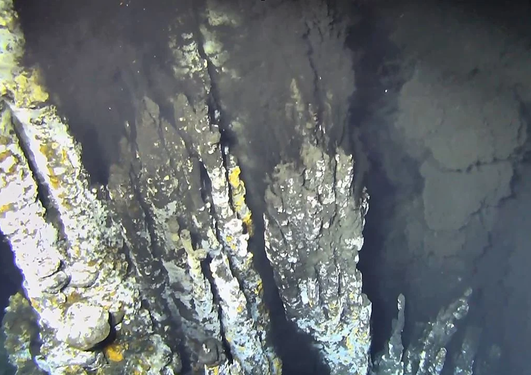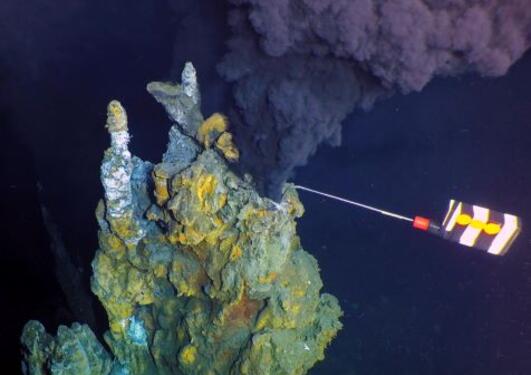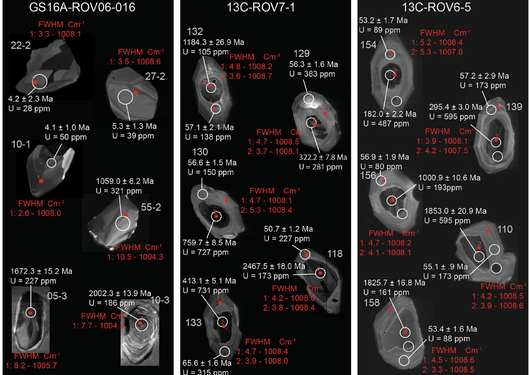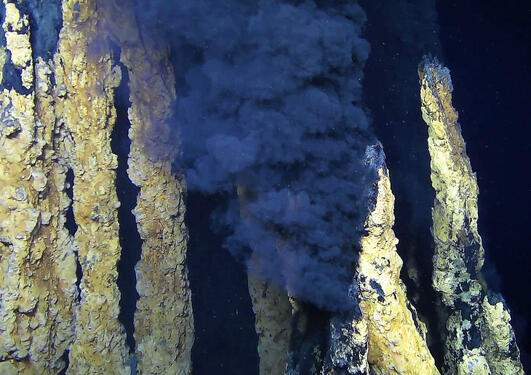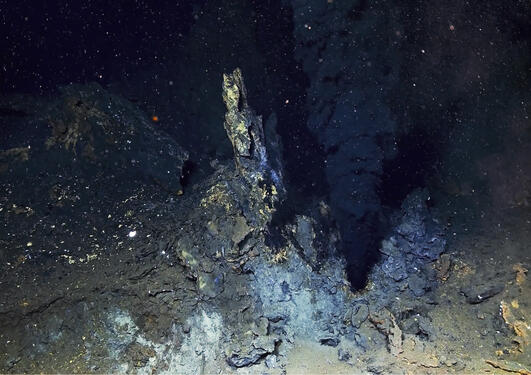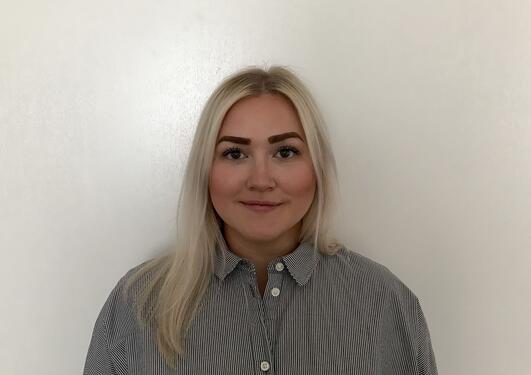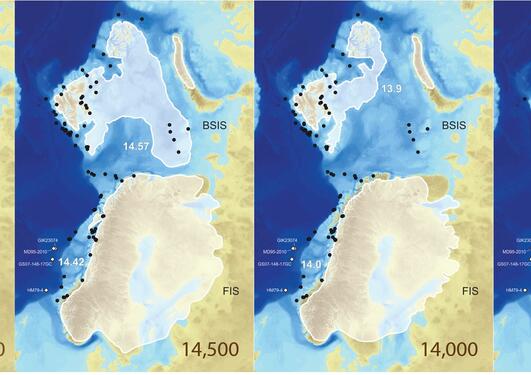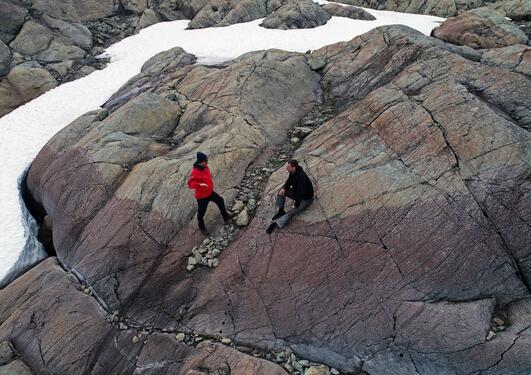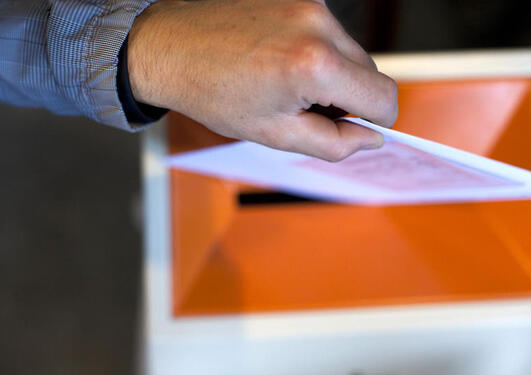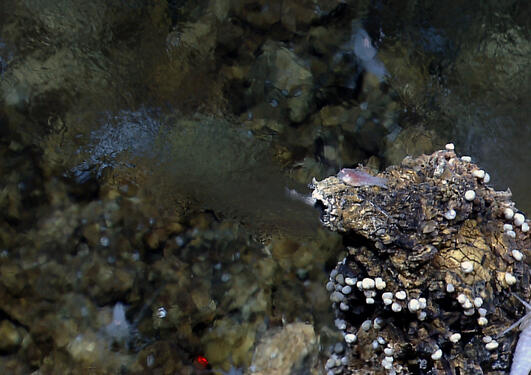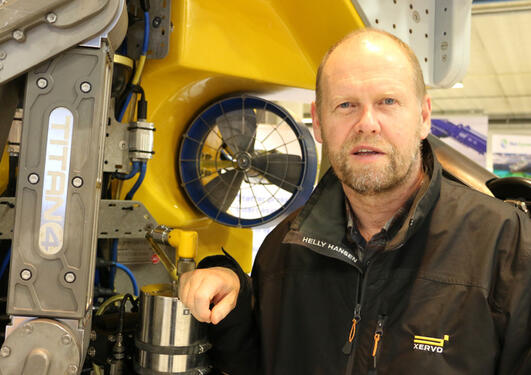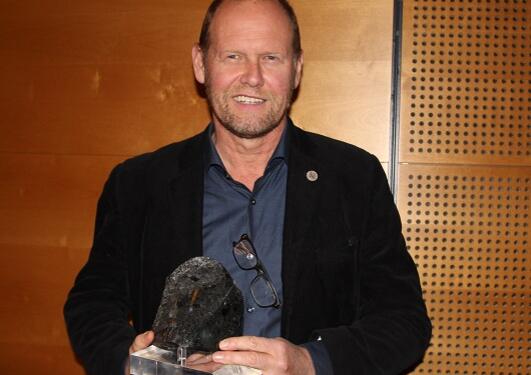News archive for Geochemistry & Geobiology
The Geomicrobiology Laboratory at UiB becomes the first public laboratory in Norway to receive the environmental certification from My Green Lab. The work on the certification has been done with support from the UiB Climate Fund.
Underneath the ocean floor, thrives a vast biosphere which activity profoundly impacting our global environment; from the air that we breathe, to the balance of the global carbon budget. The functioning of this biosphere is what the new director at the Centre for Deep Sea Research at UiB, Steffen Leth Jørgensen, seeks to understand.
Scientists taking part in the 2023 GoNorth expedition have discovered a new hydrothermal field – an area with sea floor hot springs – in the Lena Trough, part of a mid-ocean ridge between Svalbard and Greenland.
Early August, the GONORTH cruise organised by several Norwegian institutions came to an end. On its last ROV dive, a new hydrothermal vent field, named Ultima Thule, was discovered on the Lucky Ridge!
The first-known, off-axis, high-temperature deep-sea hydrothermal vents along a portion of the northern East Pacific Rise are hotter and cover more area than any other hydrothermal vents studied to date along this section of the mid-ocean ridge. The discovery demonstrates that there are more hydrothermal vents in the deep-sea than previously thought, and underscores the need for high-resolution... Read more
Raman spectroscopy of zircon allows distinction between truly inherited zircon and those that may be introduced through sample processing.
When did Earth change from a water world into a planet with continents rising above sea level? Together with researchers from The Netherlands and Germany, associate professor Desiree Roerdink from the Department of Earth Science and Centre for Deep Sea Research has found that land appeared very early in Earth’s history – up to one billion years earlier than we previously thought.
A competence building project led by Pedro Ribeiro, a researcher at the Centre for Deep-Sea Research of the University of Bergen, will investigate if deep-sea mining on the Arctic Mid-Ocean Ridge can take place responsibly, avoiding serious harm to the environment.
An interdisciplinary team from the University of Bergen, has taken a major step forward in deep sea exploration and sampling of Earth’s last truly remote and inaccessible seafloor environment – the extreme depths of the ice-covered Arctic Ocean.
The Jebsen Centre has a new PhD candidate starting today!
Last month Andreas Beinlich had a publication in Nature Geoscience, and this month we are happy to announce that a new publication from Jebsen Centre researchers is out in Nature Geoscience: Today Jo Brendryen, Bjarte Hannisdal, and Kristian Agasøster Haaga published “Eurasian Ice Sheet collapse was a major source of Meltwater Pulse 1A 14,600 years ago”.
Andreas Beinlich, the latest addition to the K.G. Jebsen Centre for Deep Sea Research, has published an article in Nature Geoscience, titled "Instantaneous rock transformations in the deep crust driven by reactive fluid flow".
Members representing all groups (staff and students) to the Department Board are to be elected for the period of - group B and D 1.8.2021-31.7.2022, group A and C 1.8.21-31.7.2025 . We hereby ask for nominations - deadline 23. March 2021.
The 47th Underwater Mining Conference (UMC’18) was presented by the International Marine Minerals Society (IMMS) in partnership with the K.G. Jebsen Centre for Deep Sea Research (KGDeepSea) at the University of Bergen and Global Centres of Expertise Subsea (GCE Subsea).
Associate professor Eoghan Reeves at the K.G. Jebsen Centre for Deep Sea Research involved in a new study featured by the Deep Carbon Observatory.
Ægir is the only usable resource in search for airplane and shipwreck in deep water
The Nordic Geoscientist Award 2016 is granted to Professor Rolf Birger Pedersen
- March 2024 (1)
- August 2023 (3)
- July 2022 (1)
- February 2022 (2)
- November 2021 (1)
- October 2021 (1)
- May 2020 (1)
- April 2020 (1)
- March 2020 (1)
- February 2019 (1)
- September 2018 (1)
- February 2018 (1)
- December 2017 (1)
- January 2016 (1)
